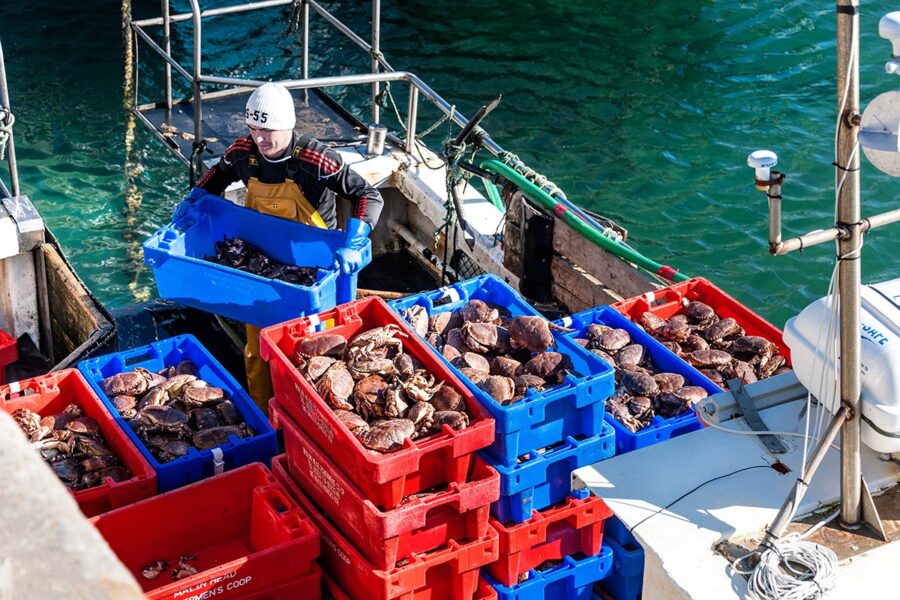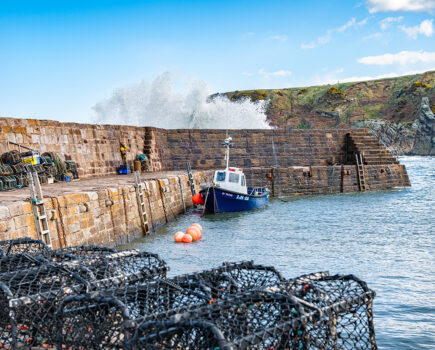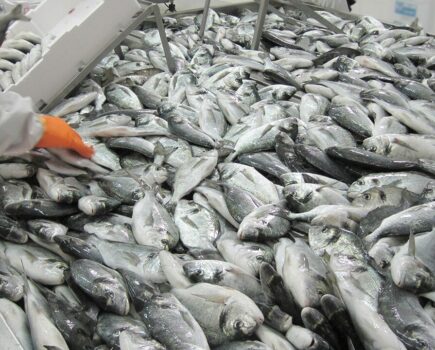The NFFO has warned that the government’s plans for spending the £100m UK Seafood Fund – promised by the prime minister in the wake of the Brexit TCA fiasco in December 2020 to help regenerate the fishing industry – mean that much of the money could be siphoned off, with little benefit for grass-roots fishermen.
The federation’s warning follows the announcement last month of the launch of the first £24m instalment from the £100m fund (Fishing News, 23 September, ‘First cash from £100m fund announced’).
The £24m will used to finance a Fisheries Industry Science Partnerships (FISP) scheme that will fund the gathering of new data to manage UK stocks, research new types of fishing gear, and increase confidence in fisheries science. Around half of the money will go to the continuation of the Fisheries Innovation Fund, and the remainder is allocated for Fisheries Science Partnerships (FSPs).
The NFFO welcomes the allocation of around £12m to FSPs, pointing out that it ‘argued passionately’ for funding to continue for ‘one of the most successful government initiatives in fisheries over the last two decades – the DEFRA/CEFAS/industry Fisheries Science Partnership’.
But it warns that while this is good news, ‘as ever, a good idea can be spoiled by poor implementation’.
As an example, it says that in the 1990s, under the PESCA European funding scheme, the local council in Bridlington replaced all the streetlights on the town’s promenade with antique Victorian lamps. It could afford this because the town was deemed to be in a fisheries-dependent area, and was therefore eligible for funding under the European scheme.
“This is an extreme, but sadly not untypical, example of how well- intentioned funding streams can be diverted far from the people or groups that they are supposedly designed to help,” said NFFO chief executive Barrie Deas.
“The difficulty we now face is that the mechanism for distributing the approximately £12m through a competitive bidding process risks excluding many individual fishing vessel operators and only favouring research institutions, NGOs and the better organised parts of the fishing industry who are geared up to deal with the complex public procurement bidding systems.
“Most individual fishing businesses have neither the time nor expertise to access the funding under this type of system.
“The original FSP, established in 2004, under pressure from the NFFO, ensured regional and sectoral equity by explicitly taking these factors into account. The FSP Steering Group made an effort to direct funding to areas and fleets that may have lost out in earlier rounds. Over time there was a balance and fairness.”
At the heart of the original FSP were several core principles:
- The scheme was designed to help answer issues raised by the industry itself
- Data gaps would be addressed in a scientifically valid way
- Fishing vessels would be employed to undertake the data gathering under scientific supervision
- Results would be formally reported and disseminated
- A steering group with industry representation would ensure fairness and relevance in the selection of projects when these were oversubscribed (as they always were).
“The result was what was described in learned journals as ‘ground-breaking participatory fisheries research’,” said Barrie Deas.
“In addition to the data and knowledge generated, strengthening stock assessments – and therefore better fisheries management – was the trust and co-operation that each FSP project generated between fisheries scientists and fishing vessel operators, that hadn’t previously existed.
“For more than a decade and a half, the FSP funded around 10 projects each year in all parts of the fleet and right across England and Wales, until eventually the budgets were cut from £1m per year to a small fraction of that.
“Our fear is that the new arrangements to allocate FSP projects through a competitive bidding system will retain the FSP title but not the fairness and relevance that lay at the heart of the original partnership.
“It would be tragic if this big political gesture of confidence in the future of the fishing industry only answered questions important to those outside the industry but excluded the very people it was designed to help.”
Barrie Deas said there may still be time to safeguard the fairness and relevance of the new FISP, and the federation is in discussion with DEFRA about its concerns.
If ‘the giant and inflexible government procurement process and a system of competitive bidding’ were to exclude grass-roots fishermen, ‘that would be a waste and a missed opportunity’, he said. “The elegant lamps on Bridlington seafront stand in testimony to what can go wrong when good intentions are misdirected into futile gestures that fail to benefit the people intended.”
This story was taken from the latest issue of Fishing News. For more up-to-date and in-depth reports on the UK and Irish commercial fishing sector, subscribe to Fishing News here or buy the latest single issue for just £3.30 here.








